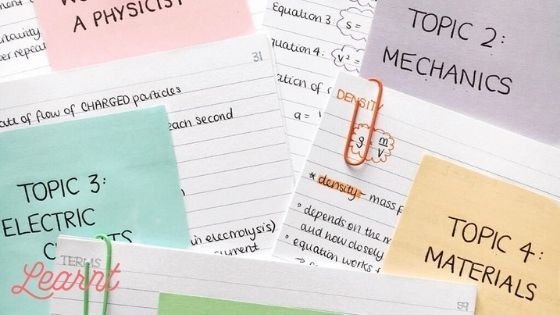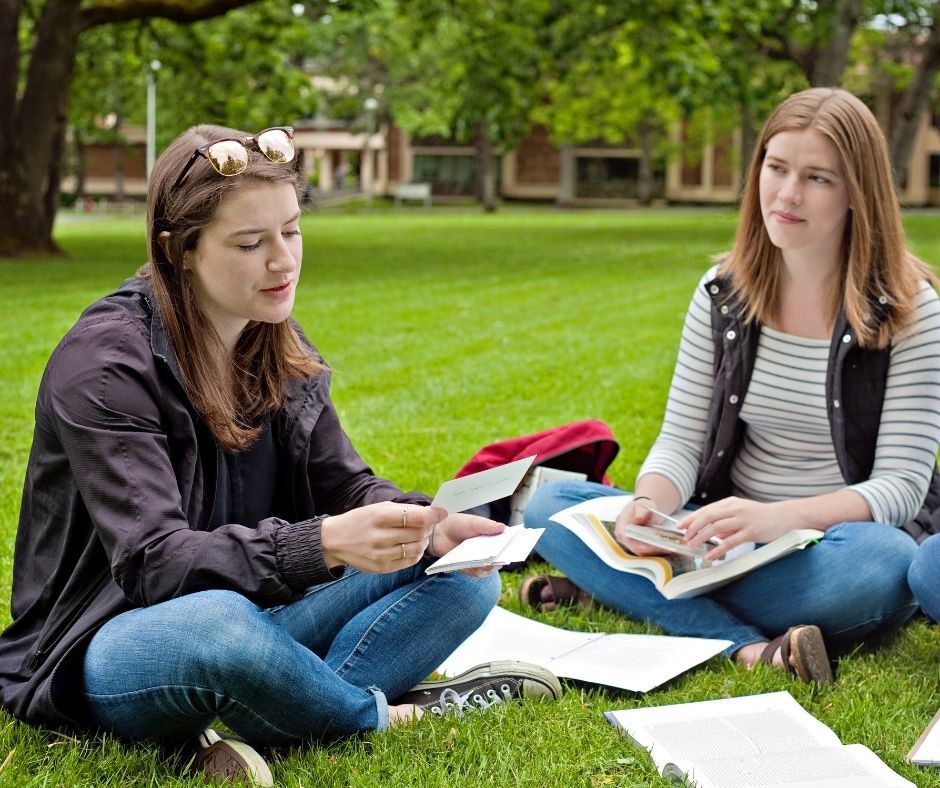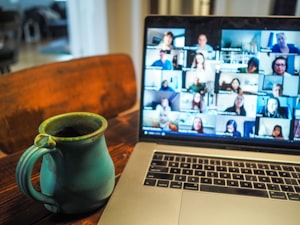Any college student can benefit from flashcards as a study strategy. Flashcards let you test your understanding of definitions and key concepts, which is an important component of exam preparation.
What are flashcards?
Flashcards are compact note cards that are used to test and improve memory by practicing the retrieval of information. The prompt is usually on one side of the flashcard, while the information regarding the prompt is on the other.
Paper flashcards were once widely utilized in both teaching and learning. However, as the edTech business evolves, digital flashcards are becoming increasingly popular.
Names, words, concepts, and methods are examples. For example, one side of the card might say "Augusta," while the other says "Maine's capital." Typically, a set of flashcards represents a category of information that you're trying to retain, study, and master.

How to Study with Flashcards?
Flashcards are sometimes criticized for encouraging students to "simply memorize" material rather than truly comprehend it. I'll show you how to use flashcards to bring diversity to your understanding and learning of concepts in this article.
Use flashcards as a quick way of testing what you know
1. On the front of the card, write a key term or question
2. On the back of the card, answer that question or write the definition for the term
3. Try to guess the answer/definition on the front before checking the answer on the back.
Summarizing your notes can be beneficial. Taking notes in your own words forces you to think about the information in a more personal and relatable way, making mental connections.
To sum up, information or theories appropriately to fit on a flashcard, you must first identify the main points and choose the most important facts or keywords that will thoroughly provide perspective to help you remember the larger concept.
Mix Pictures and Words
Including pictures in your study flashcards will help them stand out. Remember that a picture is worth a thousand words, and if you’re a visual learner, this is especially useful for you! The Picture Superiority Effect is a concept in cognitive psychology that outlines how people remember visuals better than they remember words.

This makes perfect sense from an evolutionary standpoint; written language has only been around for approximately 5,000 years (while Homo Sapiens have been roaming the globe for over 200,000), and our brains have evolved to be extremely sensitive to visuals. After all, 40,000 years ago, humans used cave paintings for communication.
You may not think you can come up with pictures for a lot of your study material – but here are some ideas:
· Authors and people – draw a simple portrait or stick figure
· Places – a quick map
· Figures and data – a chart or graph
·Dates and sequences of events – a timeline
· Process or system – a flowchart
These pictures should not be works of art – quick and simple sketches are great. The act of drawing out these images or figures will also be a form of study in and of itself, helping you associate the images with the concepts.
Only one question or idea per flashcard
Your goal isn't to cram as many points as possible into your flashcards to maximize space. The most effective flashcards have one question and one response (or one term followed by one definition).
Don't make your brain remember a long and complicated answer. Split up your larger concepts into smaller, simpler ones across multiple flashcards to make them easier for your brain to process.
This method will result in you having more flashcards, but your learning will be far more effective. The problem with longer, information-packed flashcards, is that you could deceive yourself into thinking you understood everything if you simply remembered half of a long answer.
You might also squander time repeating a long question over and over in an attempt to memorize every detail. Breaking the info down into multiple flashcards helps you to learn each section at your own pace, saving time and improving memory recall.
To memorize your flashcards, use spaced repetition
Flashcards are simple to make and use for self-study and review. Only by giving yourself adequate time to review flashcards numerous times can you fully appreciate their value.
However, testing oneself ten times with each flashcard may be a waste of your valuable study time. Some concepts will be difficult for you to grasp and retain, while others will come easily to you. This is where spaced repetition comes in: it's a strategy for helping you review when you need to.
Spaced repetition is a study strategy wherein you test yourself numerous times, at intervals, based on how well you understand the material. The concepts you should retest the most are the ones you're having trouble remembering and reciting. Intervals between study sequences should be short. It may sound obvious that you should retest the topics you're positive you understand and remember less frequently. Once you've gained confidence, retest these flashcards just enough to ensure you don't forget them.
After you answer a flashcard, put it into one of three piles:
- I have no clue about this
- I kind of know about this
- I really know this
The ‘no clue’ pile should be tested the soonest, with the most frequency. As you retest your knowledge, your flashcards should change piles until (hopefully) all of them are in the ‘I really know this’ pile.
Say Your Answers Out Loud When Studying
Learning new material requires a lot of repetition. The more senses you use in the learning process, the more likely you are to remember what you've learned. You're more likely to recall the answer if you write it down and pronounce it out loud when studying. That's because you're relying on active learning techniques.
What are the benefits of using flashcards?
- Flashcards are inexpensive.
- They are portable
- They're effective
- They make learning easier
- They’re great for visual learners and auditory learners alike, as they enable you to write and speak the material
Support Your Learning With Learnt’s Private Tutoring
While flashcards are an excellent tool to increase repetition and develop your skills, many students occasionally require additional assistance. Learnt’s tutors can work with you to personalize your learning strategy and supplement your studies.
We connect you with the best tutors in your area so you can get help studying for an exam or learning concepts in a challenging subject. Whether you're studying for AP US History, or need assistance in topics like Algebra, Physics, or Social Studies, we have tutors who can assist you now.



